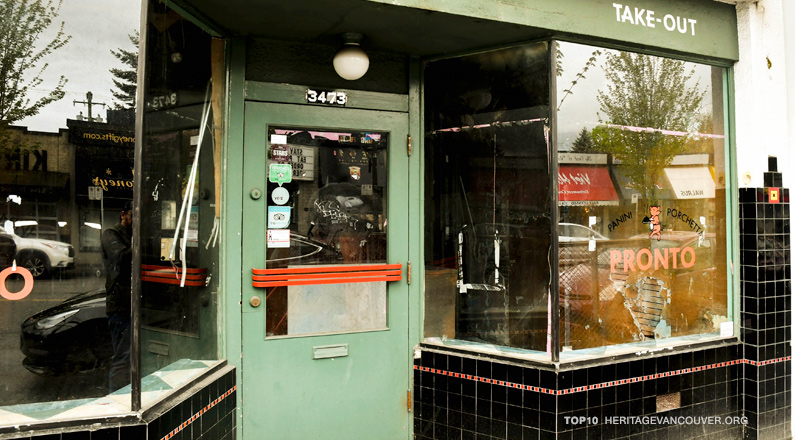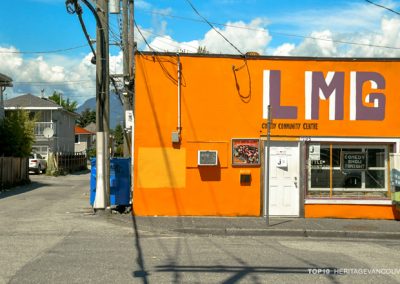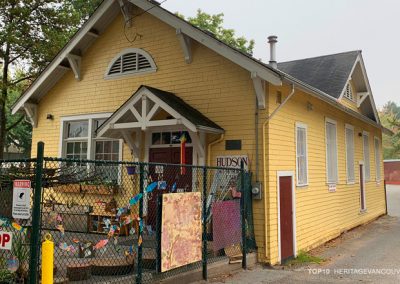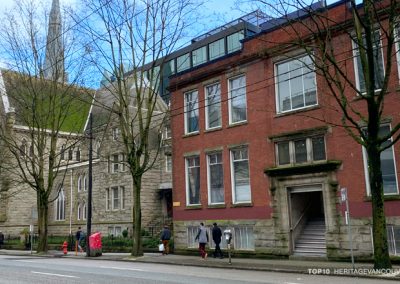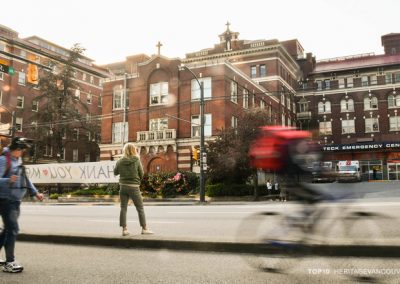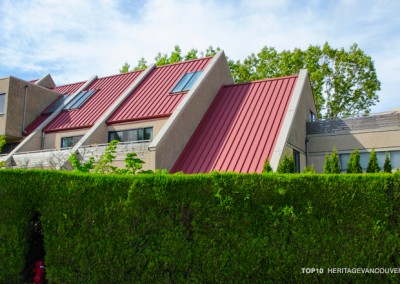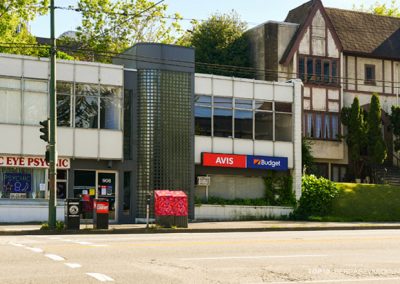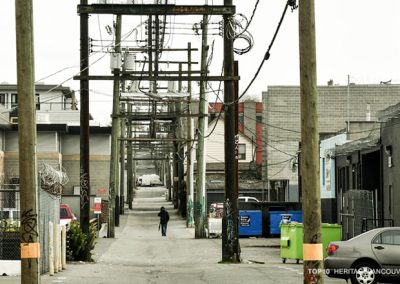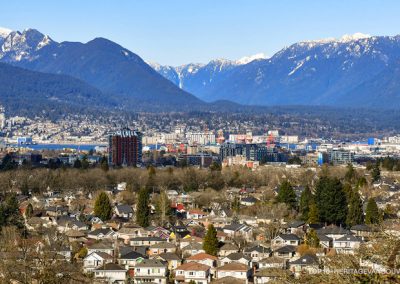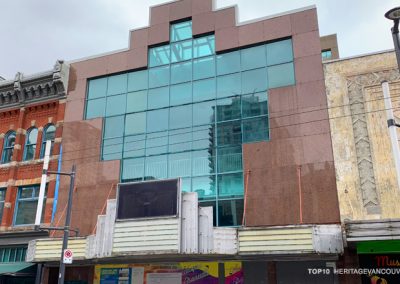More to residents than simply commercial outlets, neighbourhood businesses are critical to communities. They serve as significant social spaces, much loved gathering spots, places selling goods and services we rely on for our daily needs and a critical component of local economy.
The state of local neighbourhood businesses in 2019
Prior to COVID-19, many neighbourhood businesses were struggling for survival due to high property taxes, unsuccessful lease negotiations, and arterial rezoning policies [i]. Whereas bigger national and multinational companies remain largely unaffected, the smaller, locally-owned businesses are forced to leave their neighbourhood. This is evident in South Granville and at Main and 26th Avenue (particularly Little Mountain Gallery) for example. This has also been worrying for small businesses at the heart of Mt. Pleasant at Main and Broadway with the Skytrain development.
The impact of COVID-19
With restrictions for public health starting at the end of March, many small businesses either fully closed, or operated at a much-reduced capacity. The ability to make rent is a serious concern. Many have debated whether they would reopen again. Closures, restrictions on numbers of people in addition to lower consumer spending due to the economic slowdown have forced business models to change. Some business models may no longer be viable if a restaurant or bar can only operate at reduced capacity for example.
Despite federal government supports such as wage subsidy (CEWS), business loans (CEBA) and Commercial Rent Assistance (CECRA), these programs may not be structured in a way that gives businesses the help they need (for example, a landlord may choose not to apply for the rent assistance program which results in no assistance for the tenant). Looking towards the months and year ahead, our neighbourhood high streets with local businesses may end up very differently.
The importance of local neighbourhood businesses
My Main Street barber knows my hairstyle, my favourite cafes have watched my brother and I grow up, and my local grocer always lets me know what’s fresh from cherries to lychees. And so it is with many of our city’s small businesses. Whether it’s a Kingsway butcher, a Killarney bakery, or a Kerrisdale tailor, our neighbourhoods wouldn’t be the same without these go-to places and the personalities there that have gotten to know us.
– Tyee reporter Chris Cheung, whose stories give us a glimpse of the different lives that make up our city
Relationships between local residents, business owners, their staff and local suppliers are critical for our neighbourhoods and communities. Local small businesses help us experience and learn about the people and cultures who make up the broader city. Many serve the specific needs of the specific demographics in different neighbourhoods often at price points affordable to those in the area. Local businesses are an integral part of local economy, recirculating money back into the local economy. Some are “legacy businesses” that have a long history. All this creates a sense of place.
This was summed up by Patricia Barnes, Executive Director of Hastings North Business Improvement Association when she told us about the importance of local businesses to the Hastings Sunrise neighbourhood:
The small businesses of The East Village Vancouver are an important part of the Hastings-Sunrise and Grandview-Woodland communities that they welcome, serve and live in. The area businesses help provide a welcoming and inclusive space for all of our community members, residents and others. Many of our small business owners live in the community and their children go to the local schools consequently they are an integral part of the neighbourhood. This is also an area that is still relatively affordable so entrepreneurs can start businesses and follow their dreams. The small businesses in the East Village Vancouver have helped create a vibrant and exciting area that acts as the living room for the community.
Support
There are different ways that individuals, families, governments, and organizations can help support neighbourhood businesses. Here are a couple of comments we received.
Patricia Barnes, Executive Director of Hastings North Business Improvement Association: It has been a very difficult time but small businesses are flexible and responsive and they have spent the last 3 months doing their best to keep everyone safe while continuing to serve the community and provide themselves with a chance to economically survive the pandemic. We know that the next 6 months will be risky both from the standpoint of the future of COVID 19 and the economic survival of our small business community. All we can say is SHOP LOCAL SUPPORT YOUR SMALL BUSINESS COMMUNITY.
Amy Robinson, Founder and Executive Director of LOCO BC: After three months of almost no revenue, businesses are closing, there is a silent emptying of our neighbourhoods. Small, local businesses won’t survive unless their revenues rebound and their costs are greatly reduced. Local businesses need people coming back to stores and restaurants – if you’re not doing that as much yet, you can buy gift cards for gifts or personal use at supportlocalbc.com.
Governments can reduce red tape – reducing permit/licensing wait times is key to get new businesses into empty storefronts. Local businesses have been crippled by high property taxes for years; they need immediate coordinated action from provincial and municipal governments to assess and tax land differently so that businesses are taxed based on their use of a property and not some future potential use.
Sources / further readings
Chan, Kenneth. “BC government to provide property tax relief to small businesses and non-profits.” Daily Hive, 17 January 2020.
City of Vancouver Study on Small Businesses
Fumano, Dan. “’Wait-and-see’: On tax relief, the devil’s in the (lack of) details.” Vancouver Sun, 21 January 2020.
Fumano, Dan. “’Empty storefront tax’? Vancouver councillors, staff look at retail vacancies.” Vancouver Sun, 12 February 2020.
Guly, Christopher. “Rent Relief Is ‘Make or Break’ for Small-Business Survival.” The Tyee, 4 June 2020.
Kurucz, John. “South Granville businesses are leaving en masse and scores of jobs hang in the balance.” Vancouver Courier, 18 October 2019.
Peng, Jenny. “Ramen Row could be gobbled up by Vancouver’s downtown redevelopment frenzy.” The Star, 7 April 2019.
Tanner, Adrienne. “Neighbourhoods will change without small businesses.” The Globe and Mail, 3 April, 2020.
William-Ross, Lindsay. “How the demolition of one Vancouver restaurant can change how we define heritage.” Vancouver Is Awesome, 19 February 2018.
[i] High taxes based on the unbuilt potential density of a site with a small business, or “highest and best use” is a particularly big issue. When streets are rezoned for more storeys, this places upward pressure on the costs for small businesses on those streets. Additionally, land assemblies for new buildings tend to replace older buildings that small businesses can afford and with storefront sizes viable for small business. It is typically these buildings that allow for local mom and pop businesses.
